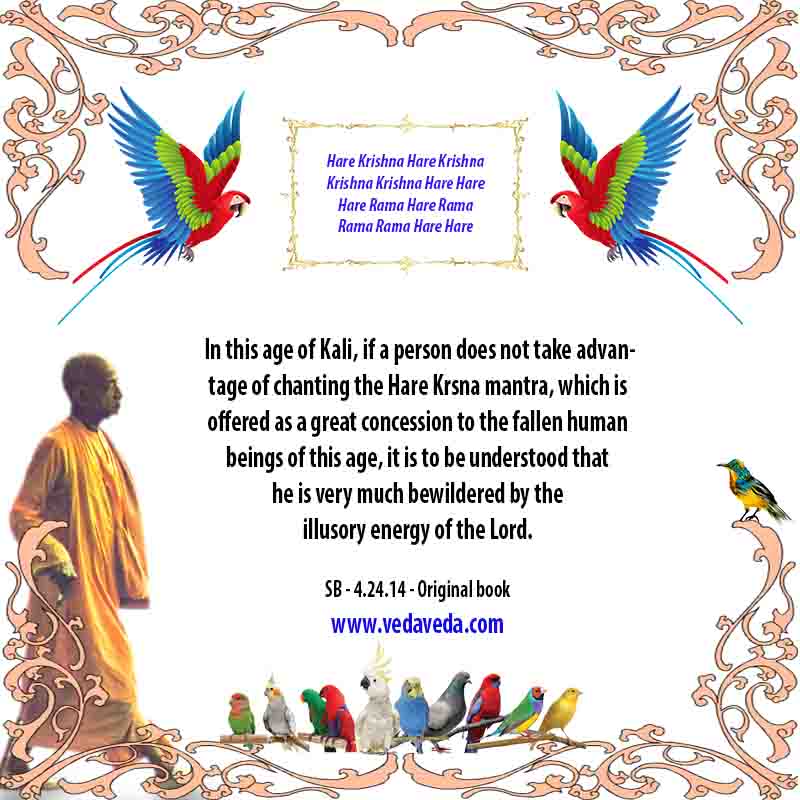
TRANSLATION
When all these Pracetās were ordered by their father to marry and beget children, they all entered the ocean and practiced austerities and penances for ten thousand years. Thus they worshiped the master of all austerity, the Supreme Personality of Godhead.
PURPORT
Sometimes great sages and ascetics enter the Himalaya Mountains in order to find seclusion from the turmoil of the world. It appears, however, that all the Pracetās, the sons of Prācīnabarhi, entered the depths of the ocean to perform austerity in a secluded place. Since they performed austerities for ten thousand years, this incident took place in the Satya-yuga, when people used to live for a hundred thousand years. It is also significant that by their austerity they worshiped the master of austerity, Śrī Kṛṣṇa, the Supreme Personality of Godhead. If one wants to perform austerities and penances in order to attain the supreme goal, one must attain the favor of the Supreme Personality of Godhead. If one achieves the favor of the Supreme Lord, it is to be understood that he has finished all kinds of austerities and penances and has attained efficiency in their execution. On the other hand, if one does not attain the perfect stage of devotional service, all austerities and penances actually have no meaning, for without the Supreme Lord no one can attain the highest results derived from performing them. As stated in Bhagavad-gītā (5.29), Lord Śrī Kṛṣṇa is the master of all penances and sacrifices. Bhoktāraṁ yajña-tapasāṁ sarva-loka-maheśvaram. Thus the desired result of performing austerities may be derived from Lord Kṛṣṇa.
In Śrīmad-Bhāgavatam (3.33.7) it is stated:
aho bata śva-paco ’to garīyān
yaj-jihvāgre vartate nāma tubhyam
tepus tapas te juhuvuḥ sasnur āryā
brahmānūcur nāma gṛṇanti ye te
Even if a person is born in a family of caṇḍālas—the lowest birth one can get in human society—he is glorious if he chants the holy names of the Lord, for it is to be understood that by such chanting a devotee definitely proves that he underwent all kinds of austerities in his previous life. By the grace of Lord Caitanya, one who chants the mahā-mantra (Hare Kṛṣṇa, Hare Kṛṣṇa, Kṛṣṇa Kṛṣṇa, Hare Hare/ Hare Rāma, Hare Rāma, Rāma Rāma, Hare Hare) attains the highest perfectional stage, which had previously been attained by people who entered the ocean and executed austerities for ten thousand years. In this age of Kali, if a person does not take advantage of chanting the Hare Kṛṣṇa mantra, which is offered as a great concession to the fallen human beings of this age, it is to be understood that he is very much bewildered by the illusory energy of the Lord.

